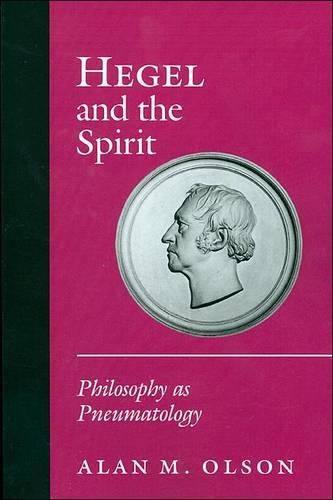
Hegel and the Spirit: Philosophy as Pneumatology
(Paperback)
Publishing Details
Hegel and the Spirit: Philosophy as Pneumatology
By (Author) Alan M. Olson
Princeton University Press
Princeton University Press
6th April 2010
United States
Classifications
Tertiary Education
Non Fiction
193
Physical Properties
Paperback
248
Width 152mm, Height 229mm
340g
Description
Hegel and the Spirit explores the meaning of Hegel's grand philosophical category, the category of Geist, by way of what Alan Olson terms a pneumatological thesis. Hegel's philosophy of spirit, according to Olson, is a speculative pneumatology that completes what Adolf von Harnack once called the "orphan doctrine" in Christian theology--the doctrine of the Holy Spirit. Olson argues that Hegel's development of philosophy as pneumatology originates out of a deep appreciation of Luther's dialectical understanding of Spirit and that Hegel's doctrine of Spirit is thus deeply interfused with the values of Wurtemberg Pietism. Olson further maintains that Hegel's Enzyklopdie is the post-Enlightenment philosophical equivalent of a Trinitatslehre and that his Rechtsphilosophie is an ecclesiology. Thus Hegel and the Spirit demonstrates the truth of Karl Barth's observation that Hegel is the potential Aquinas of Protestantism. Exploring Hegel's philosophy of spirit in historical, cultural, and personal religious context, the book identifies Hegel's relationship with Holderlin and his response to Holderlin's madness as key elements in the philosopher's religious and philosophical development, especially with respect to the meaning of transcendence and dialectic.
Reviews
"In this well-written and handsomely printed volume the author claims that Hegel's philosophy should be considered a speculative pneumatology. He backs up this claim by arguing both for the religious rootage of Hegel's philosophy of spirit and for a major influence on that philosophy by the German poet Hlderlin."--International Journal for Philosophy of Religion
